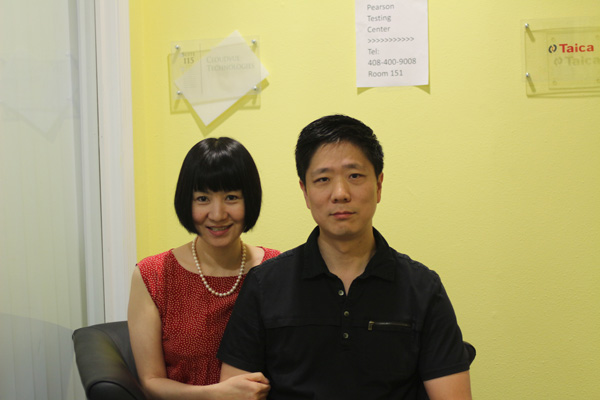Shidong Lin: Wenchuan quake created a passion to help Asians
Updated: 2014-06-20 07:51
By Chang Jun in San Francisco(China Daily USA)
|
||||||||
|
|
|
Lin Shidong (right), with his wife Li Ling, runs California South Bay University, hoping revenue will fund a future community center for Asian Americans. Chang Jun / CHINA DAILY |
Shidong Lin says he is an introvert and doesn't feel comfortable speaking in public. But those traits did not stop the 42-year-old from establishing the Chinese Mutual Aid International Network (CMAIN), which reaches out to help Asians who suffer from natural disasters and family calamities, or voicing his opinions when he feels Asian Americans are being mistreated
"It all started with the Wenchuan earthquake," said Lin.
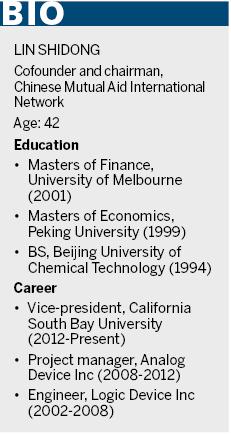
On May 12, 2008, a magtitude-8.0 quake jolted the southwest China's Sichuan province with Wenchuan as the epicenter, leaving more than 80,000 people dead or missing, 374,000 injured and millions homeless.
"We were deeply saddened at the news," said Lin. "The overseas Chinese community felt the same sorrow for the dead and the wounded."
With nearly 800,000 Chinese living in the Bay Area, San Francisco has the densest overseas Chinese population in the world. There is a long history of a close-knit relationship between China and San Francisco. Migrant workers from Guangdong province first arrived in California in the early 1900s.
In face of grave natural disasters, the overseas Chinese need to show support and extend helping hands to their compatriots, said Lin, adding, "Blood is thicker than water."
On the same day the quake hit Sichuan, Lin and two friends, Wu Huaqiang and Liu Lijian, used the Internet to call on the Asian community to donate. Teaming up with the Silicon Valley Tsinghua Network (SVTN), Lin and the volunteers set up the China Earthquake Relief Committee (SERC), which worked on help for victims of the Sichuan quake.
Because that taskforce was formed in a rush, Lin said he did not have a charity organization in place, or an account which could receive donations, "so for all the donations coming in we had to use SVTN's account."
Nevertheless, "within 30 days, we received more than 10,000 donations from 30 countries and regions, with a total amount exceeding $3 million," said Lin.
Most of the volunteers were engineers and professionals in Silicon Valley, said Lin, adding that they worked around the clock to sort out financial assistance and arrange the shipping of tents and medical appliances.
"Our donations were transmitted to Sichuan a through Red Cross Society of China, and were used for reconstruction there," said Lin, adding that the amount of donations made the organization No 1 among all overseas organizations helping with quake relief.
After the earthquake relief effort, Lin said he wondered if there was a more efficient and sustainable way to serve the Chinese community in future disasters. "We have the enthusiastic volunteers. We have the best and brightest in the Silicon Valley. I felt we have enough resources to set up our own organization," he said.
Later in 2008, Lin cofounded with Wu and Liu the Chinese Mutual Aid International Network, better known as CMAIN, and oversaw its operation as chairman.
"CMAIN's mission is to help Asian Americans who are struck by natural disasters or family accidents. Meanwhile, we serve as a bridge linking Asian Americans with Chinese compatriots when significant events take place," he said.
Lin emphasized that CMAIN is a grassroots organization, "therefore we need to pay attention to issues the community is concerned about" and "united as a group to work out resolutions if necessary."
Recent issues of significance for the overseas Chinese community, according to Lin, have included offensive remarks of "kill everyone in China" on ABC-TV's Jimmy Kimmel talk show aired on October 16, 2013.
In the show, Kimmel was speaking with a group of children, aged 5 and 6, about how the US government should pay back its $1.3 trillion debt owed to China, "Kill everyone in China," one boy said.
"Kill everyone in China? OK, that's an interesting idea," Kimmel said. He then posed the question: "Should we allow the Chinese to live?"
Lin and CMAIN thought Kimmel's show crossed the red line. "It's not a bad joke, not an accident. It's sheer discrimination," said Lin, who most of the time is composed and calm. "Remaining silent and being the obedient citizen won't rescue Asian Americans."
To protest the Kimmel incident and have their voices heard, Lin and CMAIN asked Asian Americans to demonstrate on November 9, 2013, when other Asian American organizations held protests.
Chanting slogans and waving banners that read "Living our American Dream", Lin led his group around the Civic Center Plaza of San Francisco. "We felt protesting was something incumbent on us," he said.
Earlier this year, the California Senate Constitutional Amendment No 5, or SCA5, was passed by the state Senate on Jan 30 with a two-thirds vote.
It would have allowed such public education institutions as the University of California (UC) and the California State University (CSU) systems — and even K-12 schools — to use race, sex, color, ethnicity or national origin as a consideration for admitting students or hiring employees.
The passage of SCA5 caused a stir in Asian communities, with many families worried that UC and CSU would apply quotas on enrollment. To better educate the community, Lin joined forces with several organizations on March 2 to put together a town hall meeting in Cupertino.
A panel discussion among opponents and supporters of the measure drew an audience of around 300 and created a ripple effect though the local Asian-American community.
"We've never seen a turnout like this in the 14-year history of APAPA,"said Albert Wang, the panel's moderator and Bay Area chairman of the Asian Pacific Islander American Public Affairs Association, another organizer of the meeting.
Due to continuous organized protests from the Asian-American community, on March 17 the Senate-approved legislation was withdrawn from consideration by the state, meaning the bill is dead at least for this year.
Hailing the outcome as a victory for all Asian Americans, Lin said, "It proves one more time that we need to unite since unity is strength."
In 2013, Lin quit his job as a project manager, and now works fulltime operating the privately funded California South Bay University, which he and a friend co-founded.
Lin said he hopes to use part of the revenue from the school to finance a community center for Asian Americans in the Bay Area.
"Look around, Jewish people, Japanese, Koreans, they all have their venue for community gatherings," Lin said, "but not the Chinese Americans, that ultimately limits depth and width of our activities. "
junechang@chinadialyusa.com

 Daredevil dancer conquers mountain
Daredevil dancer conquers mountain
 Chinese float gives joy at Macy's parade
Chinese float gives joy at Macy's parade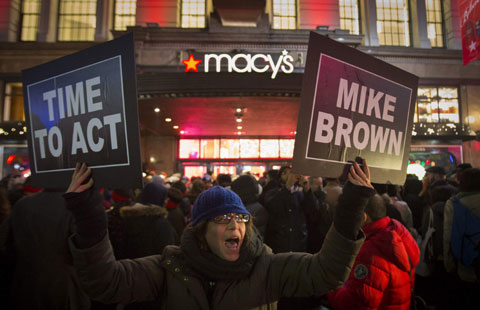
 Calm comes to troubled Ferguson
Calm comes to troubled Ferguson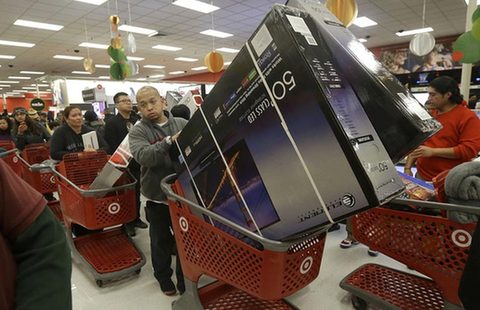
 6 things you should know about Black Friday
6 things you should know about Black Friday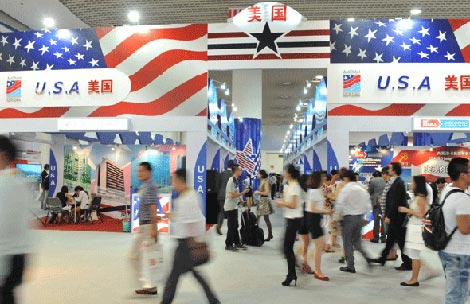
 Visa change may boost tourism to the US
Visa change may boost tourism to the US
 China's celebrity painters
China's celebrity painters
 Beauty of Beijing float making debut in Macy's parade
Beauty of Beijing float making debut in Macy's parade
 Rescue dogs show skills in NW China
Rescue dogs show skills in NW China
Most Viewed
Editor's Picks
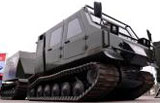
|

|

|
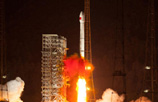
|

|

|
Today's Top News
China, US fight terror on the Internet
How to give is focus of philanthropy forum
China, US diverge on approaches to nuclear energy
China's local govt debt in spotlight
Macy's looks to appeal to more Chinese customers
Clearer view of Africa called for
Cupertino, California council is majority Asian
BMO Global Asset Management Launches ETFs in Hong Kong
US Weekly

|

|
